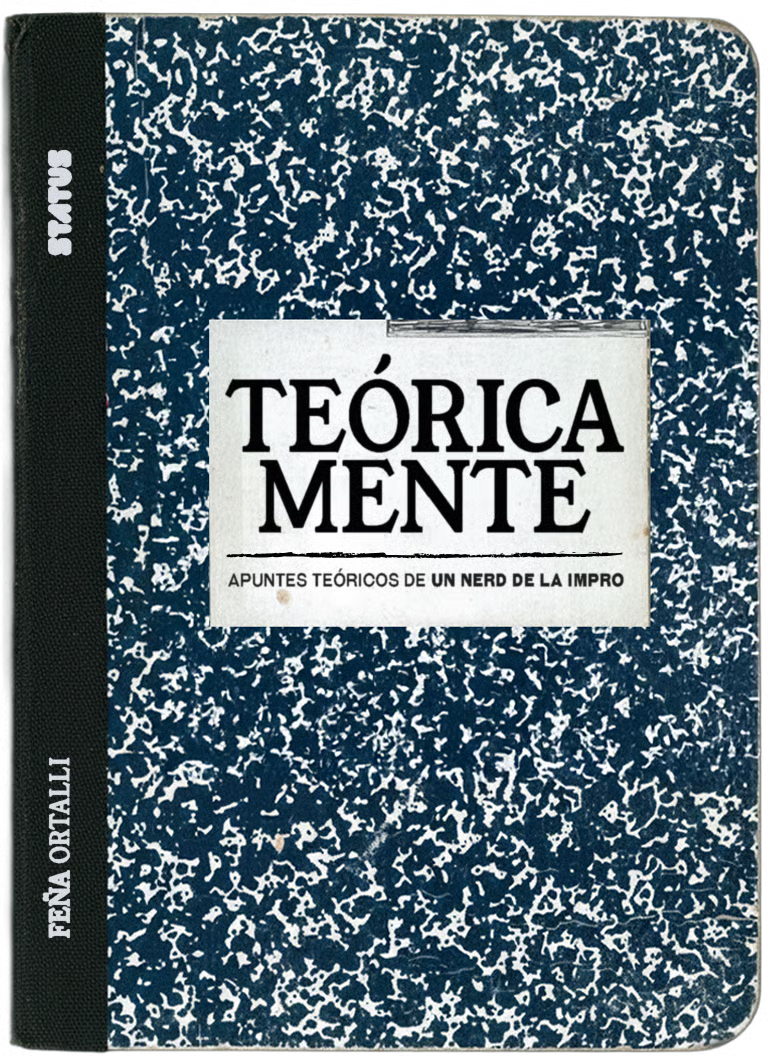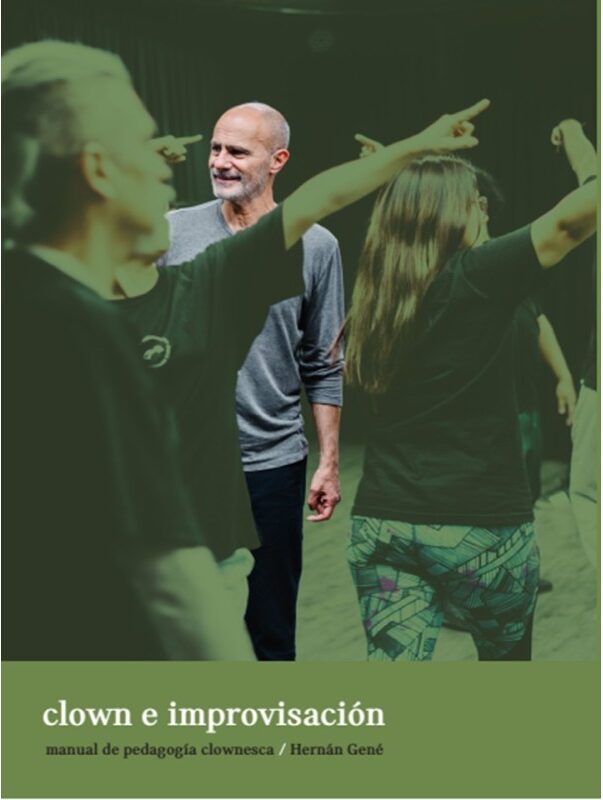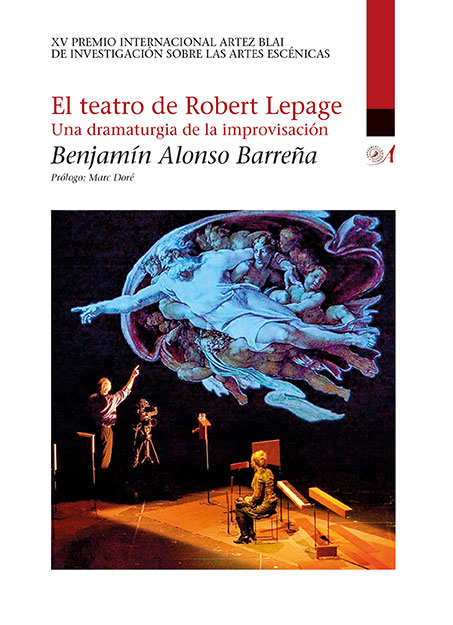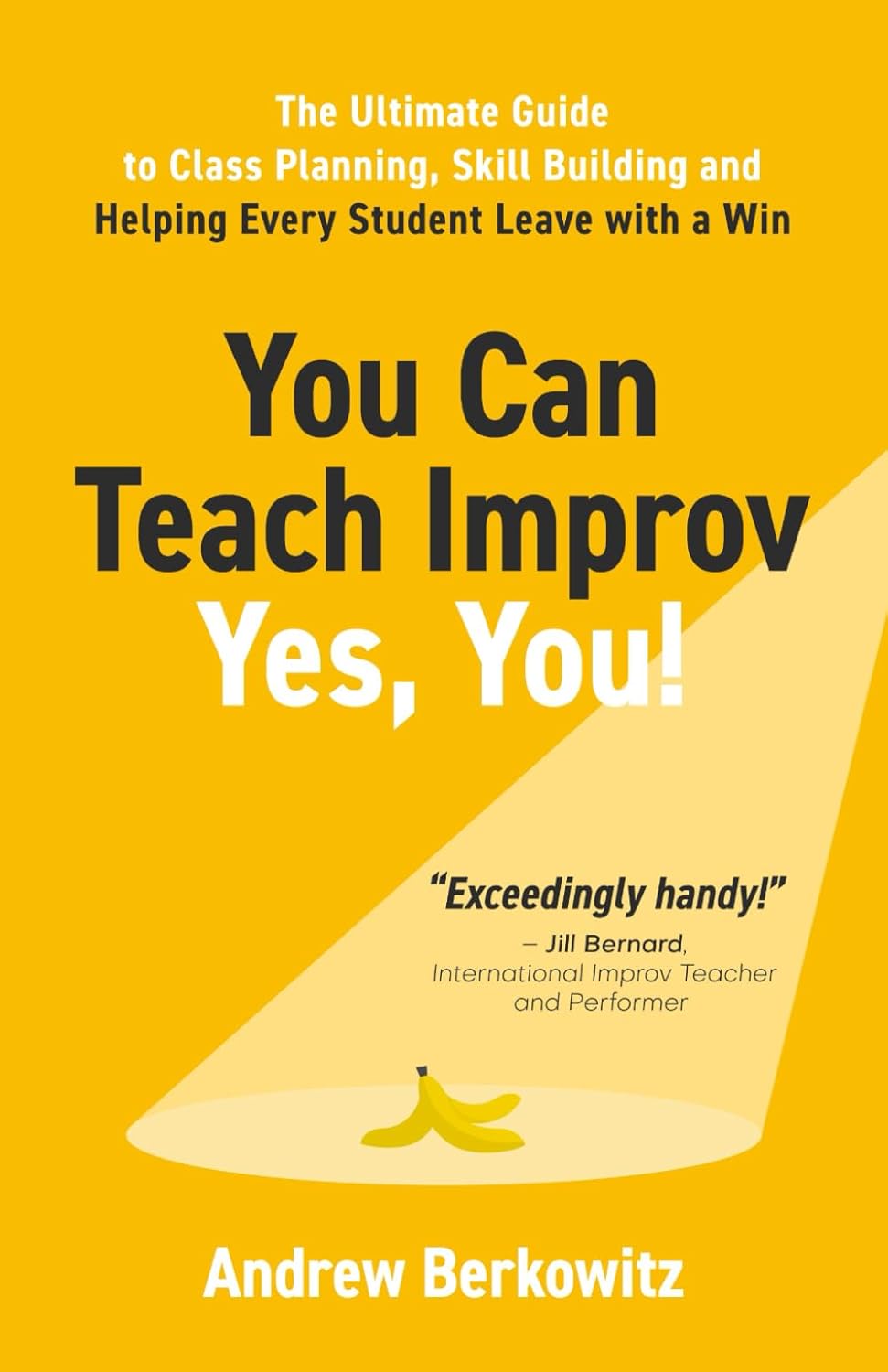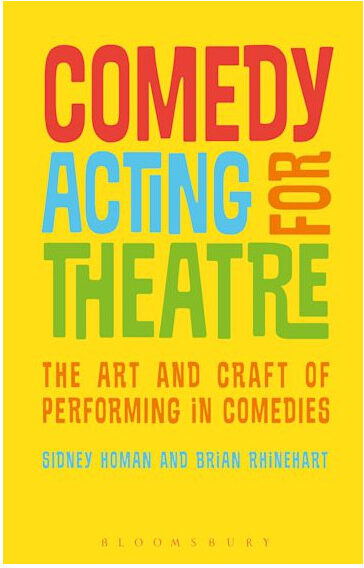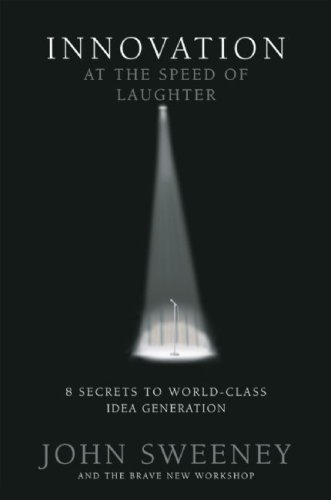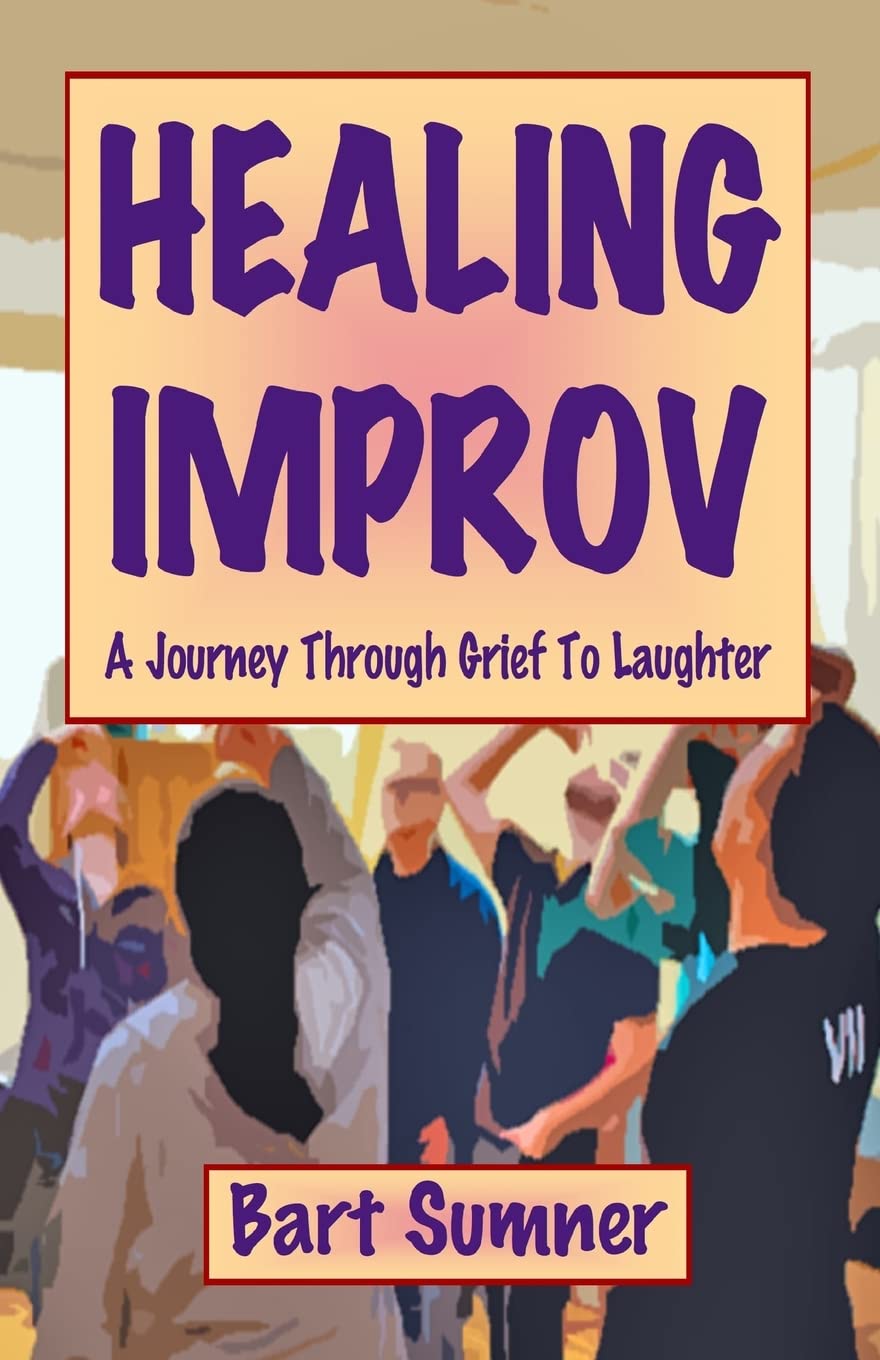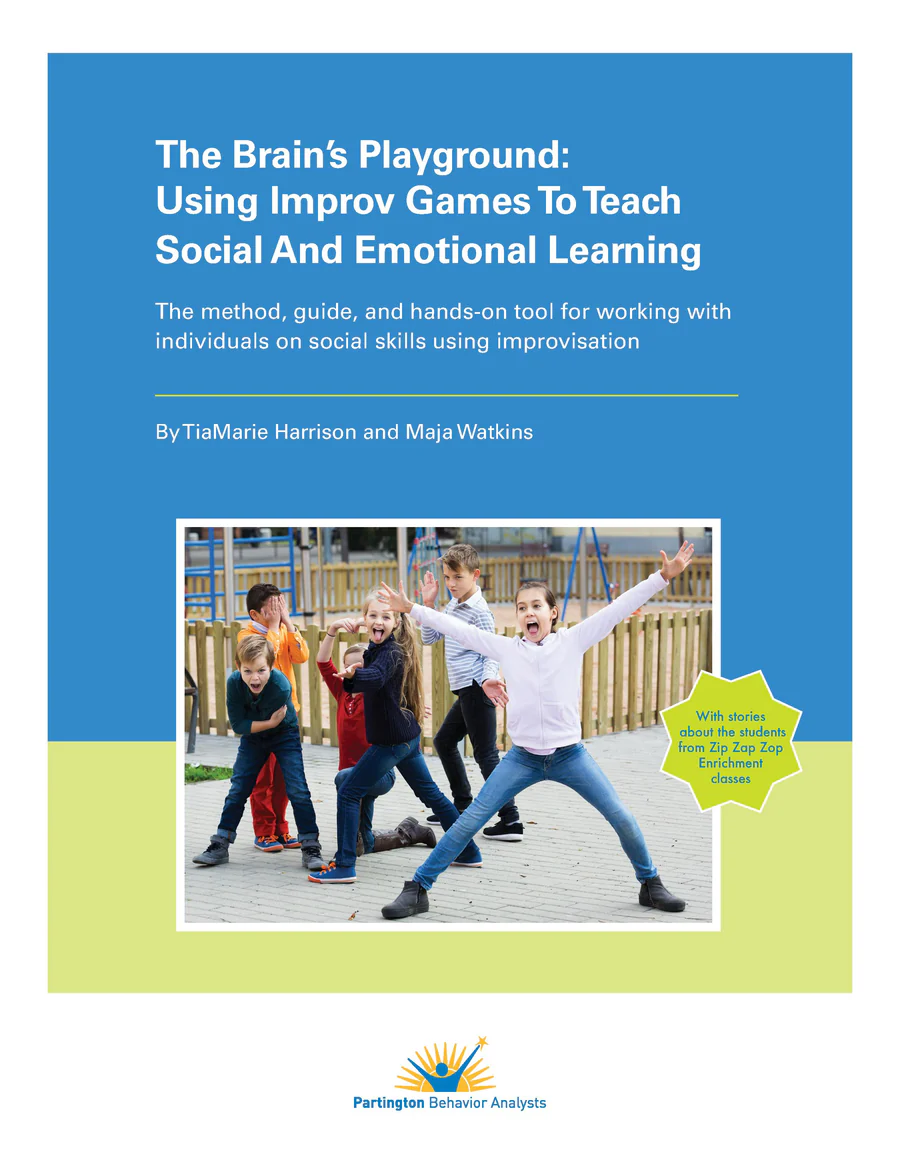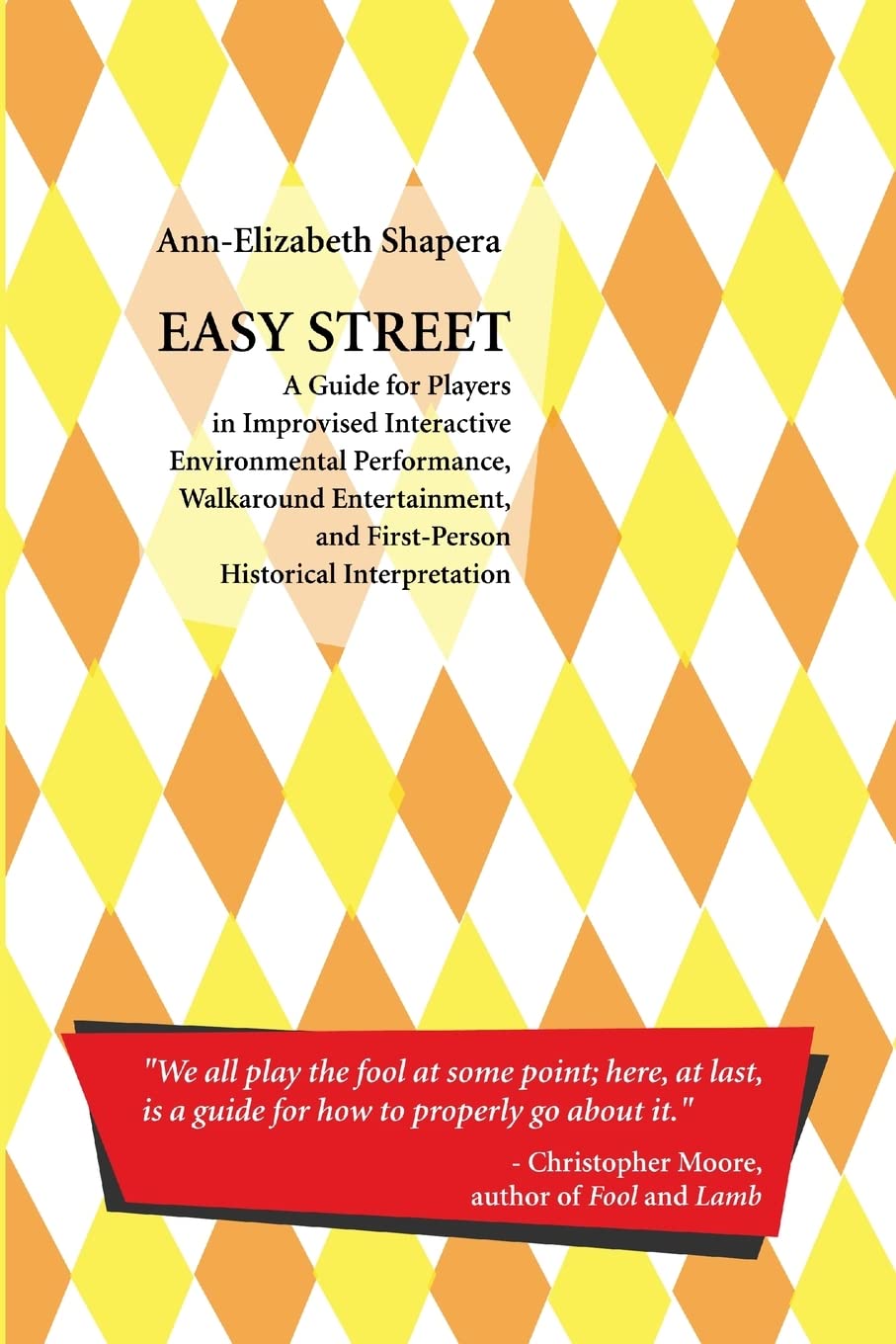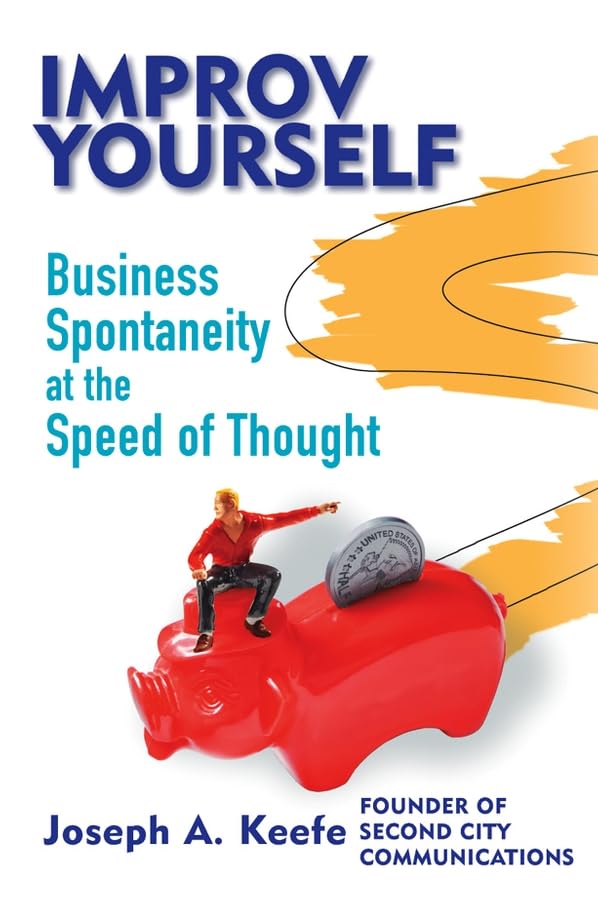New book by Feña Ortalli. And no, this time is not about football. 190 pages of technical and theoretical exploration of different concepts in improvised theatre.
Dejo en manos de los lectores y lectoras todo de lo que aprendí durante cuarenta años de docencia dando talleres de clown y de teatro físico. Aquí están mis reflexiones sobre el arte de enseñar, mis métodos y, muy especialmente, todos los ejercicios que utilicé a lo largo de mi vida como maestro de payasos. No me he guardado nada. Este es un libro sobre el uso de la improvisación en los procesos de enseñanza del clown, en la pedagogía aplicada a la formación de intérpretes que quieran dedicarse al clown. También es una suerte de testamento. En paralelo a mi vida en los escenarios, desarrollé mi faceta de pedagogo. Fue un lento y prolongado proceso el que me llevó a crear mi propio lenguaje y estilo de enseñar. Como docente, busqué formar actores y actrices completos, capaces de revolucionar el mundo del teatro cuando menos lo esperamos. Me esforcé siempre por ampliar los horizontes para que así otros puedan llegar más lejos. El clown es un escalón más en esa ambiciosa formación. Hace ya más de cincuenta años que me dedico al teatro. Llevaba en él más de diez cuando descubrí el mundo del clown. Viví ese encuentro como…
El teatro de Robert Lepage. Una dramaturgia de la improvisación “Robert Lepage fue mi alumno en el Conservatorio de Arte Dramático. Era una esponja, lo absorbía todo en las clases y lo reutilizaba después en nuestros talleres libres, unas veladas mensuales en las que los alumnos presentaban escenas o números propios. No se perdía ninguna clase y siempre nos sorprendía con la originalidad y elegancia, por no decir el estilo, de sus intervenciones. Yo no podía adivinar en lo que se convertiría más adelante, pero detecté muy pronto que era un creador. Apoyándose en sus puntos fuertes y reconociendo sus debilidades, se reinventó a sí mismo por medio de un teatro en el que podía crecer y aportar nuevo material.”
You Can Teach Improv (Yes, You!): The Ultimate Guide to Class Planning, Skill Building, and Helping Every Student Leave With a Win Learn the secrets of improv teaching today! Whether you’re just starting out or leveling up, this book unlocks your inner instructor and helps you to deliver memorable, effective, and fun classes. You’ll learn to:
Comedy Acting for Theatre. The Art and Craft of Performing in Comedies Analysing why we laugh and what we laugh at, and describing how performers can elicit this response from their audience, this book enables actors to create memorable – and hilarious – performances. Rooted in performance and performance criticism,Sidney Homan and Brian Rhinehart provide a detailed explanation of how comedy works, along with advice on how to communicate comedy from the point of view of both the performer and the audience. Combining theory and performance, the authors analyse a variety of plays, both modern and classic. Playwrights featured include Harold Pinter, Tom Stoppard, Christopher Durang, and Michael Frayn. Acting in Shakespeare’s comedies is also covered in depth.
Innovation At the Speed of Laughter: 8 Secrets to World Class Idea Generation Innovation at the Speed of Laughter explores the unexpected ways in which the tools of improvisational comedy can improve business performance. Combining his insights as a successful businessman with his expertise as a performer, John Sweeney reveals eight secrets to jump-starting workplace creativity and corporate ideation developed from the quirky, spontaneous art form of improvisation. The secrets include ‘Accepting All Ideas,’ ‘Deferring Judgment,’ and ‘Creating a Statusless Environment.’ Sweeney and the Brave New Workshop have used these secrets to help companies like General Mills, 3M Corporation, Hewllett-Packard, and Disney develop wonderfully uncommon ideas. Innovation at the Speed of Laughter will similarly help businesses, leaders, and individuals tap into their innovative potential–for creative expression as well as profitability.
Healing Improv: A Journey Through Grief to Laughter. In 2009 Bart Sumner’s life was shattered when his 10-year-old son, David, suffered a traumatic brain injury at football practice and died in his arms. Finding a way back to the road forward in a world where mourners are told “He’s in a better place” or to “Get over it” is a daunting and painful journey. He came to realize that the twenty-five plus years he spent as a performer and teacher of improvisational comedy was not only the key to his own survival, but also a powerful tool to help others mired in grief. Healing Improv: A Journey Through Grief to Laughter is an emotional and honest recounting of his family’s trek through grief to the founding of a nonprofit that provides no-cost Comedy Improv Grief Workshops for others suffering with loss. Mr. Sumner’s approach is unique in its application of improv comedy exercises to grief treatment. Healing Improv includes many of the improv games used at Healing Improv workshops so that others can also benefit from the curative, life affirming fun. Pairing these techniques with his family’s powerful and touching story of survival makes this book a strong ally to…
The Brain’s Playground: Using Improv Games To Teach Social And Emotional Learning The Brain’s Playground: Using Improv Games to Teach Social and Emotional Learning is a textbook that supports individuals with Social and Emotional Learning using improv games. Social and Emotional Learning ( www.casel.org ) includes five areas: social awareness, relationship skills, self-management, responsible decision-making and self-awareness. Improv games are used to create teachable moments when working with individuals of all abilities. Improv games help individuals to learn and connect while having fun in inclusive settings. The Brain’s Playground: Using Improv Games to Teach Social and Emotional Learning promotes connection through enjoyable activities that build relationships, improves social skills and increases verbal and nonverbal communication. The Brain’s Playground: Using Improv Games to Teach Social and Emotional Learning is a tool to be used by providers in the field of education, special education, psychology and more. Improv is used not only in theater, but in life.
Easy Street: A Guide For Players In Improvised Interactive Environmental Performance, Walkaround Entertainment, And First-Person Historical Interpretation EASY STREET is a guide for players in improvised interactive environmental performance, walkaround entertainment, and first-person historical reenacting. It’s also about much, much more than that, because the principles of effective Street play apply to any situation involving connections between people: sellers and customers, teachers and students, service providers and clients, programmers and end-users, co-workers, teammates, and fellow members of Leagues of Superheroes thrive wildly when these principles are in play. A-E Shapera has performed and taught at Shakespeare festivals, Renaissance Faires, fringe festivals and historical reenactments for over twenty years. Her walkaround character, Jane the Phoole, has performed by invitation at England’s Muncaster Castle, home to the original “Tom Fool,” and is the Official Municipal Jester of the City of Milwaukee. With a pithy blurb by bestselling author Christopher Moore!
Improv Yourself: Business Spontaneity at the Speed of Thought Discover your improvisational skills for a more productive, more dynamic work life Whether we know it or not, most of us use our improvisational skills every day in the workplace when we deal with clients and colleagues. Improv Yourself shows the reader in clear detail how to use and hone improvisational skills for better business interactions and a more productive work environment. Business expert and all-around funny guy Joe Keefe offers expert guidance on nurturing our improvisational skills to help us think on our feet, deal with customers, interact with team members, present new ideas, and brainstorm. Full of humor, wit, and expert business insight, Improv Yourself is like nothing else on the business shelf (could you tell I just made that up?).
